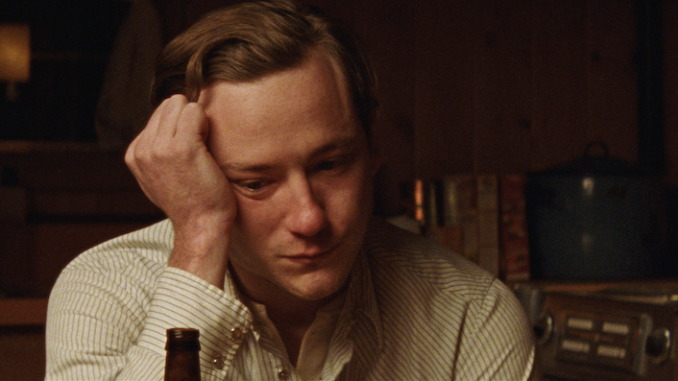
Â
Walker-Silverman: Two reasons I guess. First, Alfonso Herrera Salcedo (my dear friend and Cinematographer) and I wanted to “lift the words off the page,†in a way. To blow a breath of un-reality on the thing, to blur it into something soft and strange, to let people slip into something of a fable.Â
Second, we’ve found that shooting in high, isolated areas tends to negate many of high-resolution-digital’s (very real) advantages. Batteries are hard to charge, cards are hard to dump, and the alpine sun sears right through the digital sensor. Celluloid still holds those highlights better and you ain’t gotta worry about charging nothing. I’ll take it.Â
Walker-Silverman: Yeah, that was always the plan. The film is virtually unchanged from the scrip. Righty is one of those dads who’s just not sure how to be a dad. He’s not a bad guy or anything. He’s just ain’t sure how to do it. And not knowing what to say is an expression of that not knowing what to do. Fortunately Lewis Pullman is one hell of an actor and can make you cry with his smile and laugh with his eyes.
Review Fix:Â Silence plays a big factor in the film, discuss if you can, just a bit of why that was important to you, to almost let the passage of time tell the story.
Walker-Silverman: There’s a strange tradition of silence in the American West. Amongst men in particular. I’ve yet to decide if that’s a strength or a weakness. Both, I suppose. But there’s remarkable fragility in that hard masculinity; a real tenderness to it. As for time, well. Time’s the thing that happens while pretending we’re ok. It ticks and ticks and pulls our own little stories along whether we like it or not. So maybe in that silence we just hear it better.Â
Walker-Silverman: Well. I just wanted to tell a story about an imperfect family somehow making it work in an imperfect place. Because ultimately, whatever we tell ourselves, that’s probably everyone everywhere. And rather than bemoaning that imperfection I tried my best to sort of celebrate it.Â
Review Fix:Â Marty Grace Dennis gives a really solid performance as Lefty, are children hard to direct? She was so natural in her line delivery, was that something that you had to make happen or it came mostly natural to her?
Walker-Silverman: Children are damn hard to cast but easy to direct. If you can find the right one all you need to do is tell them where to stand. The beautiful thing about that youthful neurology is that the barrier between the real and imagined is yet to really be constructed. So for a natural like Mary Grace Dennis there’s this very humble ability to step into a fabricated moment and just exist in it. Â

Leave a Reply